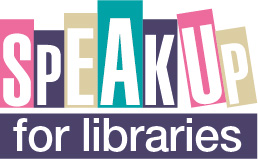The Sieghart report on public libraries has sat on the minister’s desk for over a month. No sign of publication.
Maybe it’s because the minister (Ed Vaizey) is waiting until he can publish it alongside news of what he’s going to do about it. Maybe.
For action is urgently needed – and it’s perfectly possible, William Sieghart stressed when he spoke on Tuesday (4 November) at a Westminster Media Forum event.
He used the word ‘quickly’ a lot. And there’s no need for massive innovation or funds, he said. What’s needed, he said, is a body that will be responsible for getting his recommendations put into practice.
And, he made clear, somebody or something must shake up local authorities and library leaders to do what they should have been doing for years – sharing resources and best practice. And doing some…er, leadership.
As for grassroots librarians, he had a hymn of praise.
“Librarians around the country,” he said, “are going beyond the call of duty, dealing with the most difficult people, who don’t trust anyone else… people who fall through the cracks in social services.
“Librarians are under-valued, they do amazing things that you see only if you go to a library. They are the community entrepreneurs of the future – less less ‘shhh’, more ‘come on in’.
“What they need is leadership, investment, belief.”
And volunteer libraries? Sieghart expressed “great admiration for what [they] have done. But volunteers shouldn’t run libraries. I don’t think they are a model that works effectively, especially in deprived areas. We need sophisticated librarians.”
Got that, Ed?
More from Sieghart:
* I have been told over and over again that nobody wants another bloody review. People want action.
* Localism is a strength and a weakness – local libraries are loved but are disconnected as a national network. There’s no consistency of strategy, resources.
* The library is the most trusted place in the community.
* [Social class] As and Bs don’t use libraries, but they run the country… they have no idea what librarians are contending with. Middle-class, middle-aged and monied, they think that Kindles mean you don’t need libraries.
* Some local authorities struggle to know how to deliver – they tend to panic, go for closures or volunteers. That will be a disaster.
* Bring the community into the library. Once, parents weren’t involved in schools, now they are. With involvement and proper consultation, the service improves, and quickly.
* 35% of the population use libraries. 50% of poor people do, and the most hard to reach people. It’s more important than ever now the government is trying to deliver more & more things digitally.
* We need a digitally literate and digitally fluent society. If we don’t get one, inequality will get worse. Any vision of a competent, competitive society must include libraries.
* There are astonishing libraries around the country. They are the future.
* A dream library – and I have seen many – is flexible, has more than one type of space (eg, for children or for quiet study), has a working toilet and wifi. (Fewer than half have wifi – it’s appalling, bonkers. They are closing libraries while half the population is sitting across the road using a coffee shop to get wifi. All sorts of businesses have installed it widely, at little cost.)
* Libraries give health advice, support for education, support for small businesses (10% of start-ups in Northamptonshire are via libraries). So many government departments have a stake, but haven’t realised how significant libraries could be.
* There’s lots to do about joining up. It’s not about new resources, or lots of money. And it’s not rocket science.
* We need to turn the narrative – and quickly.





















